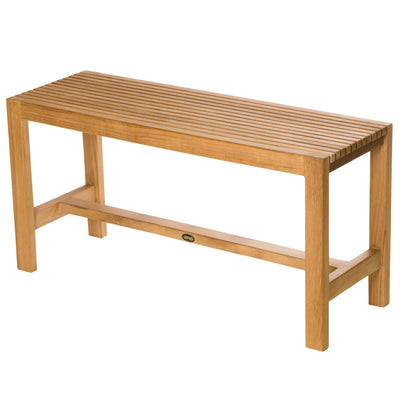The Unparalleled Characteristics of Teak
Teak wood sets the standard to which all other woods are compared. Why? Because of its oil! Prized since the 7th century, the abundance of natural oil found in the tight grain of a teak tree’s heartwood quickly became the ideal building material for Dutch and English war ships during the 18th and 19th centuries.
Grade A teak is the highest quality teak wood and comes from the heartwood of a fully mature tree (40 to 80 years old). It is antibacterial and resistant to rotting. Grade B teak is between the heartwood and the sapwood and contains considerably less oil than grade A teak. It requires constant protective treatment. Grade C teak is the part of the tree that was living when felled and contains no characteristics similar to its grade A counterpart. It will be susceptible to weather and insects and eventually warp and break.
Teak furniture made from grade A or grade B teak will last for many years with proper care. Grade C teak should be avoided for furniture-making purposes, as it will not last as long.
Five Characteristics of Grade A Teak
Hardwearing: Teak’s natural oils make it mold and rot resistant. There are currently centuries-old teak benches in English parks still in use today.
Elegant: The rich oils give teak wood a unique, smooth honey colour, filled with highlights and low lights that add a luxurious, natural warmth to any space.
Class 1: Teak timber is at the top of the scale when it comes to highest natural durability.
Texture: If you run your hand over a piece of natural teak furniture, you’ll notice the wood texture is always warm to the touch. It will never snag, warp or splinter.
Pest resistant: Grade A teak’s high oil content makes it naturally resistant to invaders like fungi and insects.
The value received is as important as the amount spent

It’s true; some clients price shop teak. But a teak expert knows this should never be the deciding factor when it comes to purchasing. Maintenance & replacement costs add up, making grade A teak the obvious winner over time. When it comes to quality and durability, there's just no substitute for 100% natural teak.









